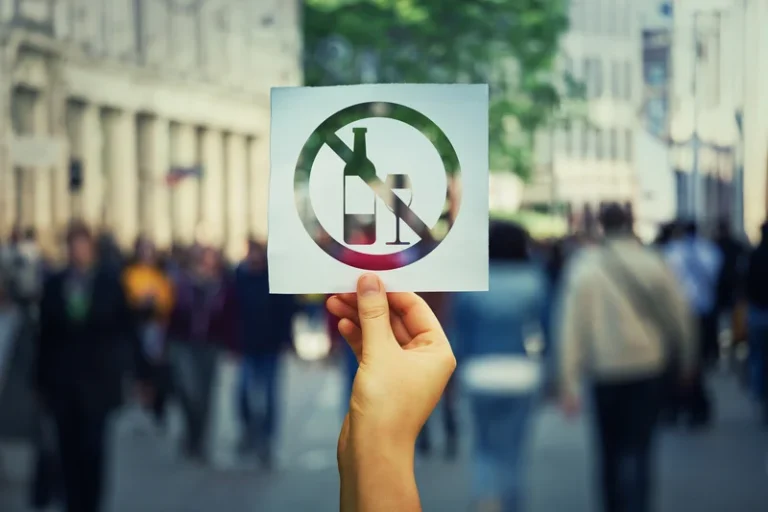
A total score of 15 or more points indicates that the patient is at increased risk for severe withdrawal effects, such as confusion and seizures. Within just a month of not drinking, your body can begin to reap the benefits. Your liver can start to heal, your risks of heart disease and cancer go down, and you may begin to sleep better. Too much alcohol affects your speech, muscle coordination and vital centers of your brain. A heavy drinking binge may even cause a life-threatening coma or death. This is of particular concern when you’re taking certain medications that also depress the brain’s function.
The Time For Help Is Now
Patients who experience more severe withdrawal (i.e., who have CIWA-Ar scores of 8 to 15 or greater) should receive pharmacotherapy to treat their symptoms and reduce their risk of seizures and DT’s. The medications with the best efficacy and safety are the benzodiazepines. Like alcohol, these agents enhance the effect of the neurotransmitter GABA on the brain. Because of their similar effects, benzodiazepines and alcohol are cross-tolerant—in other words, a person who is tolerant to alcohol also is tolerant to benzodiazepines.
to 24 hours
AW seizures generally can be prevented by medications that are cross-tolerant with alcohol. For example, benzodiazepines have been shown to prevent both initial and recurrent seizures. Similarly, carbamazepine and the barbiturate phenobarbital probably can prevent AW seizures, although insufficient data exist in humans to confirm this hypothesis.
Pharmacotherapy of Alcohol Withdrawal Symptoms
Administration period and median amount of the benzodiazepine chlordiazepoxide administered over the course of alcohol withdrawal to patients undergoing a symptom-triggered or fixed-schedule dosing regimen. Historically, several mechanisms have been suggested to play a role in the development (i.e., etiology) of AW. Withdrawal symptoms can begin to surface in as early as two hours after your last drink. While the most painful symptoms typically subside within the first week, some mild symptoms can last for several weeks to a year. There is no exact timeline as to when or what withdrawal symptoms you will experience; however, there’s a general outline of what to expect. Patients presenting with alcohol withdrawal syndrome should receive thiamine and folate supplementation as they are often nutritionally deficient.
- Also, your risk of developing cardiovascular disease will start to decrease.
- Severe and complicated alcohol withdrawal requires treatment in a hospital — sometimes in the ICU.
- Approximately one in 10 people with alcohol withdrawal syndrome are affected by seizures.7 If left untreated, up to one in three of these patients go on to experience delirium tremens.
- They’ll check your vitals, ask how you’re feeling, and may perform blood tests as necessary to check your hydration levels.
Behavioral Treatment
Alcohol use disorder includes a level of drinking that’s sometimes called alcoholism. Alcohol withdrawal that progresses to delirium tremens causes intense hallucinations, as well as severe confusion, disorientation, and agitation. It’s characterized by a frenzy of activity in the nervous system, and physical symptoms like high blood pressure, a fast pulse, fever, and sweating. It’s most common in people who have chronically used alcohol in high quantities over the years, or consistently for months. Early detection and professional treatment can prevent death or serious injury.
What Does Alcohol Do to Your Body? 9 Ways Alcohol Affects Your Health
Approximately one-half of patients with alcohol use disorder who abruptly stop or reduce their alcohol use will develop signs or symptoms of alcohol withdrawal syndrome. The syndrome is due to overactivity of the central and autonomic nervous systems, leading to tremors, insomnia, nausea and vomiting, hallucinations, anxiety, and agitation. If untreated or inadequately treated, withdrawal can progress to generalized tonic-clonic seizures, delirium tremens, and death. Two commonly used tools to assess withdrawal symptoms are the Clinical Institute Withdrawal Assessment for Alcohol Scale, Revised, and the Short Alcohol Withdrawal Scale. Patients with mild to moderate withdrawal symptoms without additional risk factors for developing severe or complicated withdrawal should be treated as outpatients when possible.

Alcohol withdrawal syndrome poses a significant clinical challenge arising from the spectrum of AUD—a prevalent condition affecting a substantial portion of the United States population. The alcohol detox phase can involve withdrawal symptoms ranging from mild intensity to life-threatening. Oftentimes, the longevity and severity of your alcohol use disorder (AUD) will play a role in the withdrawal symptoms you experience. For example, individuals who have struggled with years of heavy drinking are more likely to develop serious withdrawal symptoms like seizures or delirium tremens. The frequency and setting for outpatient monitoring of AWS should be guided by symptom severity, risk of complications, and social factors, including reliable social support and a safe home environment. Blood pressure, pulse, and alcohol breath analysis should be obtained whenever possible.
Stage Three (Severe Symptoms)

It can start within two to five days after your last drink and can be life-threatening. However, less than five percent of people will develop delirium tremens when quitting drinking. In the outpatient setting, mild alcohol withdrawal syndrome can be treated using a tapering regimen of either benzodiazepines or gabapentin administered with the assistance of a support person. Proposed regiments include fixed dosing with as-needed doses available.

What Is Alcohol Withdrawal?
- For example, researchers still must clarify the exact molecular and genetic mechanisms responsible for the varied manifestations of withdrawal.
- If you turn to alcohol to manage emotional distress, the added overwhelm can prompt the urge to drink, making success seem even more out of reach.
- “Furthermore, consistent use of alcohol to induce sleep only increases the need to use alcohol in the future to get to sleep,” he explains.
- You may also receive other medications or treatments for related health issues, like IV fluids for dehydration and electrolyte imbalances or antinausea medicines if you experience vomiting.
You may not need to completely reinvent your life to quit drinking, but making a few changes in your surroundings to help avoid alcohol triggers can make a big difference. Research shows that most people believe https://ecosoberhouse.com/ that drinking can make them feel better. However, when alcohol makes up part of your typical routine, drinking can become something of an automatic response, especially when you feel stressed or overwhelmed.

What Happens When You Stop Drinking Alcohol?
The main ways to prevent alcohol withdrawal are to avoid alcohol altogether or to get professional help as soon as possible if you think you’re developing alcohol use disorder. Generally, you may need treatment for alcohol misuse when you can no longer control alcohol detox side effects the amount you drink or how long you drink. You may also know that you need help with alcohol misuse when you begin experiencing consequences directly related to your alcohol misuse—but you still can’t stop or cut back on the amount that you’re drinking.
